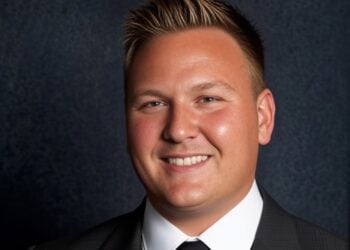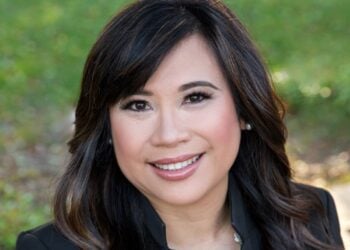In medical school, Jeffrey Balke was chosen for a research fellowship at the Howard Hughes Medical Institute at the NIH. He worked at the Laboratory of Immunoregulation, a molecular biology lab under Anthony Fauci. “Interacting with Dr. Fauci weekly and the other medical team members was instrumental in my developing interest in medical research and the intellectual pursuits of internal medicine,” Balke said. “It just seemed to click with my personality.”
AALM: Since your residency, you’ve had privileges at smaller medical centers as well as large teaching hospitals. How does this broad experience inform your work as an expert?
JB: My career spans 33 years since my chief residency at the University of Minnesota. I have worked in hospitals of all types— with active privileges and employment in small community critical access and regional hospitals in addition to several large tertiary teaching hospitals and now as an academic teaching physician at my alma mater. I have worked closely with many (if not all) types of specialists, surgeons and other consultants and their physician assistants and nurse practitioners. This includes both in the outpatient setting and as a hospitalist.
I have seen many different diseases, injuries and medical situations, giving me a broad base of reference when examining and evaluating medical cases as an expert witness and reviewer. The ability to critically evaluate the many different facts, outcomes, treatment options and patient situations is the most important skill I’ve used throughout my career as an expert witness.
AALM: When did you first serve as an expert witness?
JB: I was asked to evaluate a medical malpractice case in 1995. The attorney “cold called” the University of Minnesota Department of Medicine looking for an internist with extensive level 1 and emergency department clinical experience (which I had had) and I took the call. Slowly, my name became known as a broadly seasoned internist who was objective and fact-based in developing my opinions. Attorneys began calling me for case evaluations and my name became known locally in the five-state (MN, WI, SD, ND, IA) area and it has just continued to grow.
AALM: Of the cases you’ve worked on, are there any that have stood out to you?
JB: Probably the most intriguing and nuanced cases involve postoperative abdominal surgery mishaps where a bowel injury lies quietly hidden until a certain time where the beast comes out of the bushes. Additionally, anticoagulation issues are quite challenging and nuanced. I’ve also reviewed multiple cases of postoperative respiratory failure and aspiration complications both for the defense and plaintiff sides.
AALM: How would you describe your approach to your work as an expert witness?
JB: I am extremely dogged with respect to my thoroughness and attention to detail. I’ve learned that great attorneys want to hear ALL my thoughts and opinions on a case and my reasoning for thinking a certain way.
I’ve experienced matters where the other side’s argument is quite weak because the expert is being coerced into supporting a certain opinion offered by the attorney they’re working with. I don’t think this is common, but I will never develop or support an opinion that I don’t strongly believe is legitimate.
AALM: Tell us about a real-life situation that resonates with who you are as a doctor and expert today.
JB: I met a former patient at a party a few years ago. I had been one of their doctors in the ER when their perforated appendix was missed. The chain of events leading to the missed diagnosis was no one’s fault—it just demonstrated that the diagnostic and treating processes are not perfect. Sometimes, things go unavoidably awry.
It taught me to be extra cautious and thorough as a doctor. As an expert, it taught me to be honest, humble and deliberate in my reviews and interactions with attorneys for either side. I strive to highlight the truth, no matter the outcome.
I hope to continue doing this work as it is highly satisfying and intellectually stimulating and helps me be a better clinician, teacher and mentor to colleagues, students and residents.








